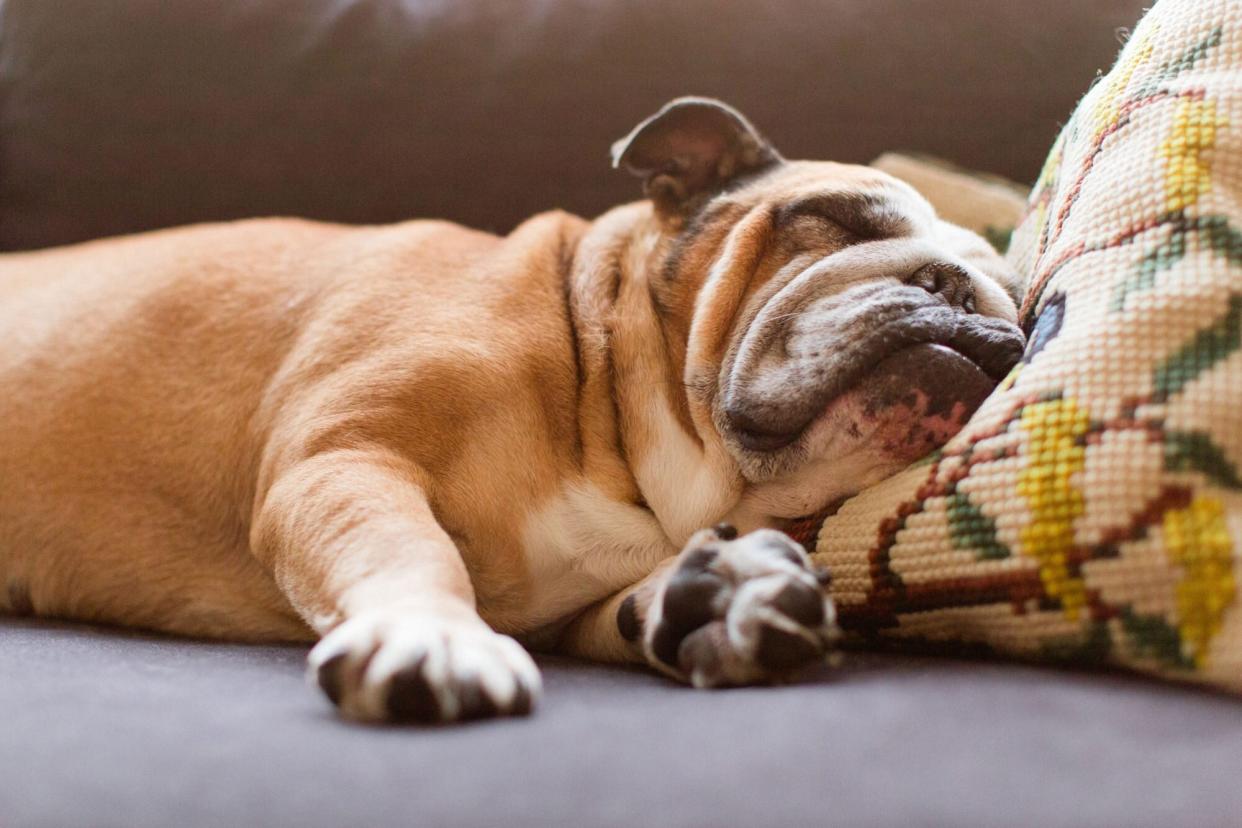Is My Dog Sleeping Too Much?

Getty/Hanneke Vollbehr
If you started working from home in recent years, you may have been surprised to find out just how much of the day your pup spends snoozing away. It's enviable. And according to Dr. George Melillo, Co-founder and Chief Veterinary Officer of Heart + Paw, it's completely normal. He says a dog typically spends about half the day sleeping or resting. Yep—12 to 14 hours of pure rest and relaxation.
You can expect your four-legged family member's sleep schedule to vary depending on things like activity level, age, and size. Dr. Melillo explains that puppies need more sleep than adults and most large dogs need more sleep than smaller dogs. It can even vary by breed; for example, he says a golden retriever needs less sleep than a bulldog. (Here are some other breeds to keep in mind if you, too, like to take it easy.)
"A lot of this has to do with the way dogs sleep, which is a bit different than how people sleep as dogs spend less time in REM-rapid eye movement sleep than people," Dr. Melillo explained. Dogs enter the REM cycle after about 20 minutes of sleep. As it turns out, the amount of time spent dreaming is also dictated by the dog's size, with dreams lasting anywhere from one to five minutes.
Activity level is another critical factor in a dog's sleep routine. "Dogs typically will sleep too much out of boredom or due to their lifestyle," says Dr. Melillo. So it's important to make sure your dog gets an adequate amount of both physical exercise and mental stimulation every day.
So is it possible for a dog to sleep too much? Aboslutely. Aside from indicating boredom, it can hint at bigger problems. "If a dog is sleeping longer than normal, that could be a sign of weakness or underlying disease and should be discussed with the veterinarian," Dr. Melillo says.
That's not the only sign of a problem though. For some dogs, just like for many humans, the problem is not getting enough sleep. "Some dogs will have anxiety issues that prevent sleep," Dr. Melillo says. "Others may have a disruption in their environment or routine. In some cases a pet may have pain that affects their ability to get comfortable."
Wondering where they should sleep to maximize comfort? Well, that really is just personal—for you and your dog. Dog owners who share their bed with canine companions are more likely to get woken up at night, but the emotional comfort the closeness brings may actually make up for detrimental effects. If your pup seems restless or co-sleeping is bringing out some negative behaviors, maybe get them their own space in the room.
In some cases, the culprit for too much or too little sleep may be obvious and fairly resolvable—a move, a schedule change, a lifestyle change. But when there's no obvious explanation, don't hesitate to check in with the vet.

